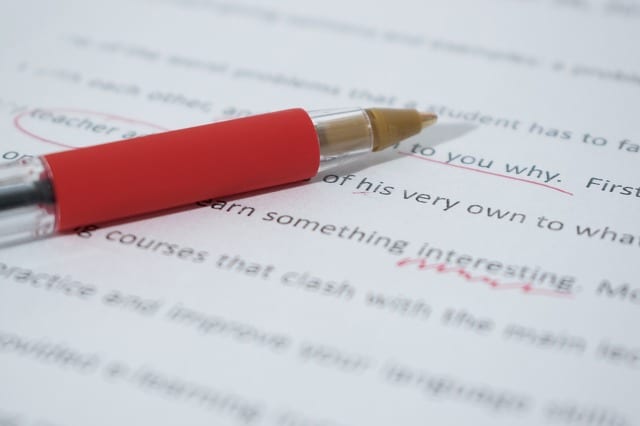
no description

no description
Hah! I just read a study by colleagues in the communications world that confirms what I endlessly preach in the classroom: Grammar still matters. So does spelling, punctuation and making sure words mean what you think they mean.
Mike Schmierbach, whose office is down the hall from me, and Alyssa Appelman, a recent Penn State Ph.D. who now teaches at Northern Kentucky University, got volunteers to read news stories, some of which were riddled with grammatical errors, then asked them to rate the credibility of the articles.
Their finding: Articles with more grammatical errors were deemed less credible than articles with fewer errors.
I’m not surprised. The way I’ve always put it is, if you don’t get the small stuff right, readers aren’t going to trust you on the big stuff. Think you’ll find reliable information in a story about “Hilary” Clinton or “Barak” Obama? You won’t.
Contrary to a bit of pop philosophy, I counsel my students to sweat the small stuff…because none of it is small stuff.
Whether perspiration is the key to the well-lived life is a discussion for another day, but it certainly applies to journalism, and to professional communication generally. Submitting sloppy copy, I tell my students, is like wearing cut-offs and flip-flops to a job interview. Publishing writing that has not been edited and proofread is like walking away from a paint job before you’ve touched up and cleaned the brushes.
Were they to object that this is only for a class, that they’ll take greater care when it really counts, I’d have to bust out the sports metaphors: Why do you think kickers endlessly practice field goals and extra points? To increase the likelihood that they’ll make ‘em when the games count in the standings.
Oh, I have a paint bucket full of analogies I can deploy to impress upon my students the importance of spending more time editing than they spend on the first draft. I’m not sure they believe me, though.
I think I look like this genial, middle-aged dad-like person. They see a 19th-century knuckle rapper.
They think, as long as I know what they mean, what difference does it make? I see the decline and fall of civilization.
What they don’t see when it comes to grammar, apart from the credibility issue, and instances where, in fact, I don’t know what they mean, is the distraction factor. As soon as I notice a nuts-and-bolts error, I’m no longer thinking about the content.
During this, the year of fake news, I’ve been asked multiple times how to ferret out the phonies. My kneejerk response is, start with the grammar. Stories written — and edited! — by professional journalists tend to have fewer errors than stories written by people pretending to be professional journalists.
There are two problems with this advice: One is that it may not be realistic to expect readers of fake news to be any more knowledgeable than the purveyors of fake news when it comes to the nuts and bolts of good journalistic writing. The other is that news organizations are trimming their copy-editing staff to save money, and publishing their content with only minimal editing to save time, which may be narrowing the gap between the pros and the amateurs.
And speaking of decline and fall, it pains me to tell you that the students I’m teaching in 2017 are less skilled than their counterparts were when I started in 1997.
Their aversion to hyphens hasn’t changed. I once came up with what I thought was an amusing riddle to illustrate why these dinky links are important.
Q: What’s the difference between Santa Claus and me?
A: Santa Claus is a white-bearded man, whereas I’m a white, bearded man.
That is, he’s a guy with a white beard, I’m a white guy with a beard.
That was before my own beard turned white.
Then, as now, my students fling commas into their sentences as if they were drunken darts players, with no control over where the little missiles will land.
But I don’t recall ever seeing as much apostrophe abuse as I’ve seen this semester. I can understand confusion about whether it’s “The New York Times’ editorial page” or “The New York Times’s editorial page.”
I can even understand, sort of, confusion about plural possessives, especially with weird plurals like “men”: Is it men’s room or mens’ room? (The first one is correct.)
What I can’t fathom are apostrophes popping up in plain old plurals, as in “four calling bird’s, three French hen’s, two turtle dove’s.”
I have arrived at the age where I am frequently asked when I’m going to retire. Catch me after I’ve graded a batch of papers and I’m likely to say tomorrow sounds pretty good.
On the other hand, Schmierbach and Appelman have shown me that my skills, such as they are, are still needed. So maybe I’ll keep rapping knuckles for a while longer.
And if any of you fellow fanatics find a mistake in this column, I promise to offer up my own knuckles for rapping.
Receive all the latest news and events right to your inbox.

80% of consumers turn to directories with reviews to find a local business.